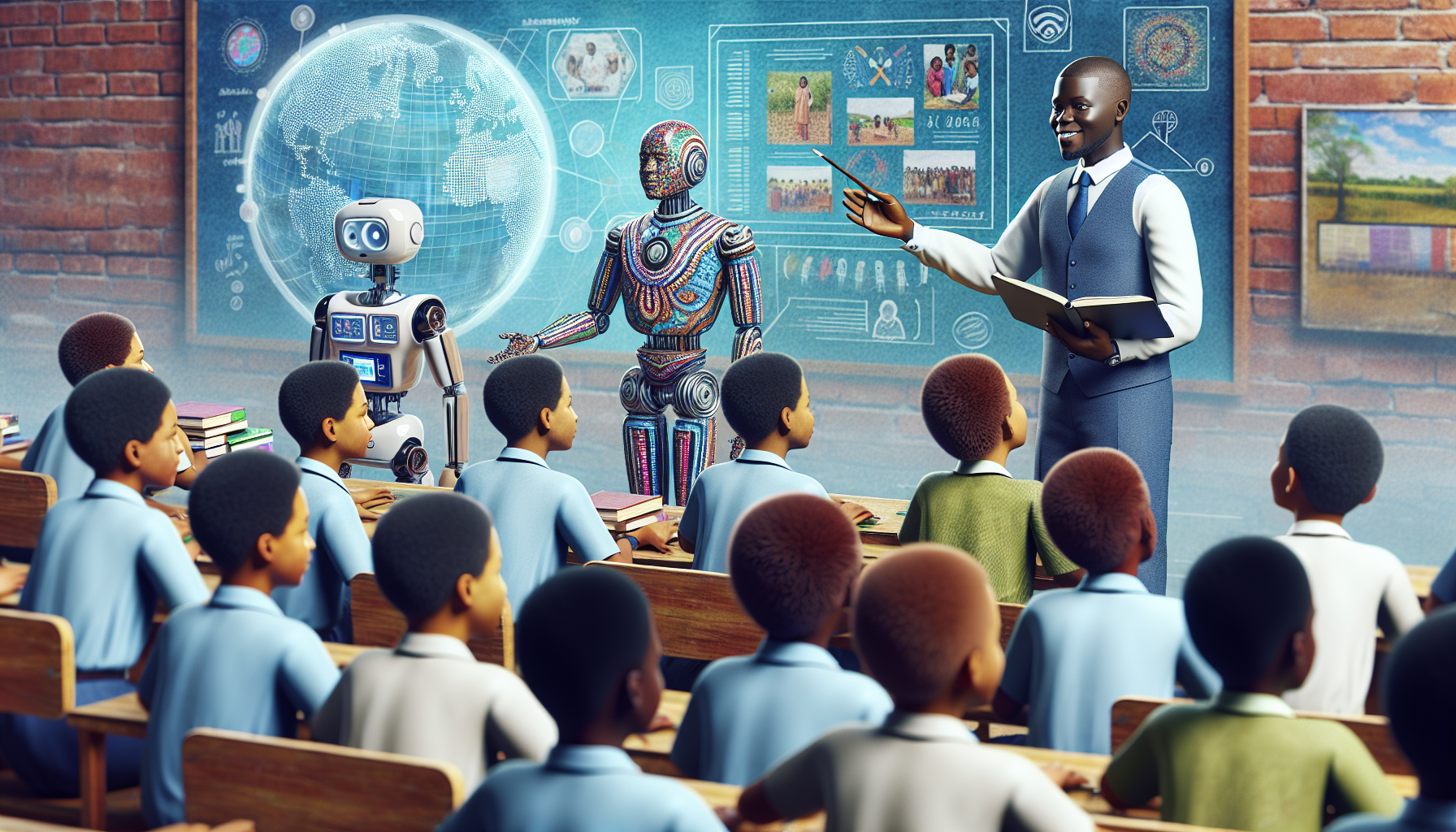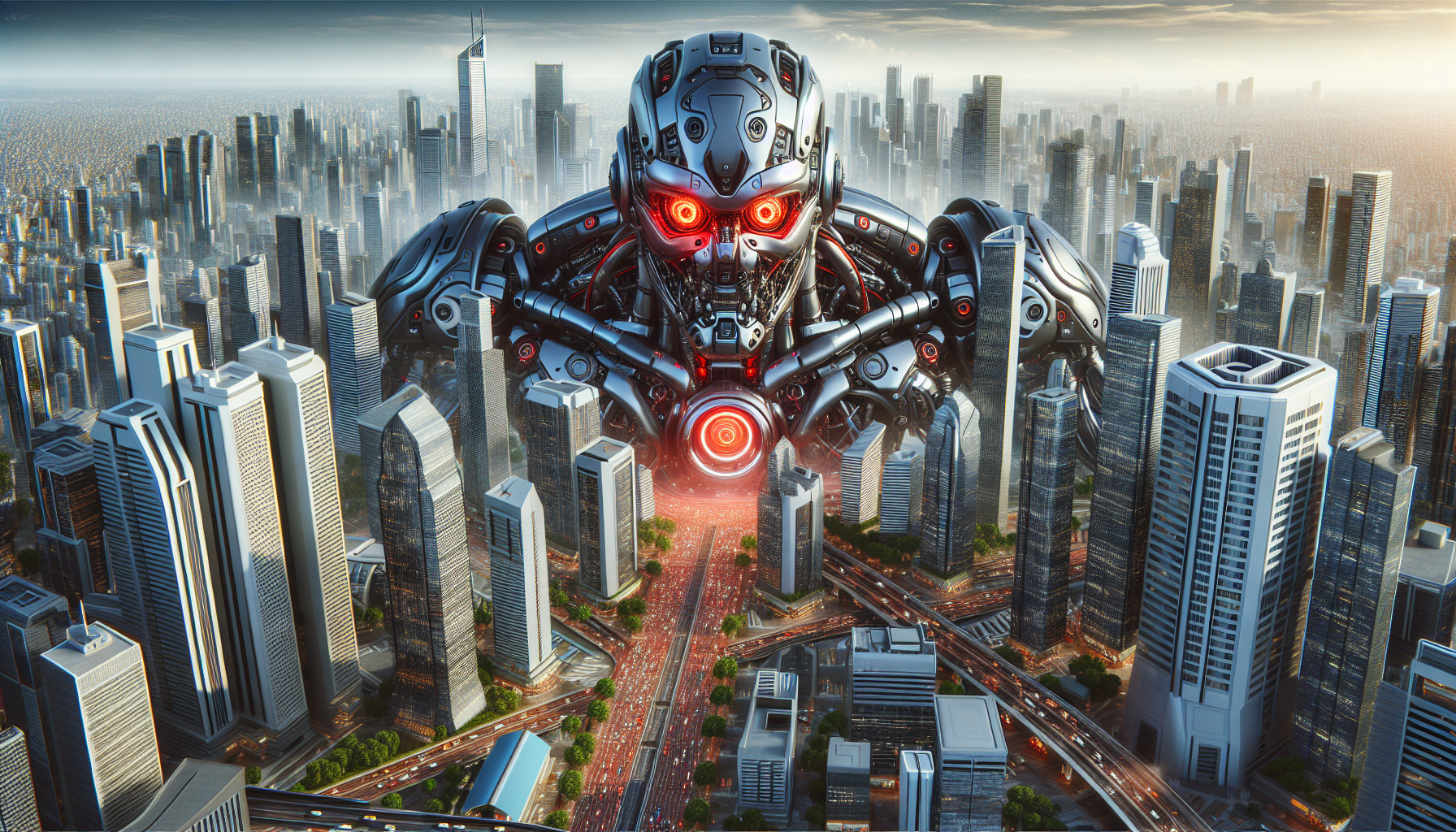
Artificial Intelligence (AI) and Machine Learning (ML) are often used interchangeably, but they represent different concepts within the broader realm of intelligent systems. AI encompasses the overall goal of creating machines that can perform tasks requiring human intelligence. This includes reasoning, learning, problem-solving, perception, and language understanding. ML, a subset of AI, focuses specifically on the ability of machines to learn from data and improve their performance over time without being explicitly programmed.
Example: In Nigeria, AI is being leveraged in the financial sector to enhance fraud detection systems. AI algorithms can analyze patterns in transaction data, identify anomalies, and flag potential fraudulent activities. On the other hand, ML models are used to predict future fraudulent transactions based on historical data, continuously improving their accuracy and efficiency.
Key Differences:
- Scope: AI is a broad concept that includes various techniques and approaches to mimic human intelligence. ML is a specific method within AI that focuses on data-driven learning.
- Function: AI systems can perform tasks autonomously, whereas ML models require data input and training to refine their performance.
- Applications: AI applications can range from simple automation to complex problem-solving. ML is primarily used for tasks that involve pattern recognition, data analysis, and predictive modeling.
Impact on Nigeria:
The integration of AI and ML in Nigeria is driving innovation across multiple sectors. For instance, in agriculture, AI-powered drones and sensors are used to monitor crop health, optimize irrigation, and predict yields. In healthcare, AI algorithms assist in diagnosing diseases, analyzing medical images, and personalizing treatment plans. These advancements are not only enhancing productivity but also improving the quality of life for many Nigerians.
Artificial Intelligence and Education: Revolutionizing Learning in Nigeria
AI is revolutionizing education by providing personalized learning experiences, automating administrative tasks, and offering smart content. In Nigeria, where educational resources and infrastructure can be limited, AI offers a transformative solution to bridge the gap and ensure quality education for all.
Personalized Learning:
AI-powered platforms can tailor educational content to meet the unique needs of individual students. By analyzing data on student performance, learning pace, and preferences, these systems can adjust the difficulty level, suggest additional resources, and provide real-time feedback. This personalized approach helps students grasp concepts more effectively and stay engaged in their learning journey.
Example: PrepClass, an AI-driven platform in Nigeria, offers personalized tutoring services. The system assesses each student’s strengths and weaknesses, providing customized lessons and exercises to enhance their learning experience.
Efficiency in Administration:
AI automates routine administrative tasks, allowing teachers and educational institutions to focus more on instruction and student support. From grading assignments to scheduling classes, AI systems streamline processes, reducing the administrative burden and enhancing operational efficiency.
Example: Some Nigerian schools use AI to automate attendance tracking, grade assessments, and manage student records. This not only saves time but also ensures accuracy and consistency in administrative tasks.
Smart Content and Learning Tools:
AI provides smart content and learning tools that enhance the educational experience. Virtual tutors, intelligent textbooks, and interactive learning platforms are just a few examples of how AI can make learning more engaging and effective.
Example: In rural areas of Nigeria, AI-driven apps provide interactive lessons and quizzes that adapt to students' learning levels. This makes quality education accessible to students who may not have access to well-equipped schools or qualified teachers.
Challenges and Opportunities:
While the benefits of AI in education are immense, there are challenges to address. These include the high cost of technology, the need for digital literacy among educators and students, and concerns about data privacy. However, with ongoing investment and innovation, these challenges can be overcome, paving the way for a more inclusive and effective educational system in Nigeria.
Artificial Intelligence vs. Human Education: Complementing Each Other
The debate between artificial intelligence and human education often centers around whether AI can replace human teachers. The reality is that AI and human educators complement each other, each bringing unique strengths to the table.
Human Education:
Human teachers provide emotional support, creativity, and critical thinking skills that AI cannot replicate. They understand the nuances of student behavior, offer personalized mentorship, and foster a supportive learning environment. Human educators also inspire students through their passion and dedication, which is vital for holistic development.
AI in Education:
AI offers personalized learning, immediate feedback, and the ability to handle repetitive tasks, allowing teachers to focus on more complex aspects of education. AI systems can analyze vast amounts of data to identify learning patterns, predict student performance, and suggest tailored interventions.
Example: In Lagos, some schools are integrating AI into their classrooms to supplement traditional teaching methods. AI-driven tools provide additional support and resources, enabling teachers to spend more time on creative and interactive activities with students.
Comparison:
- Human Education: Provides emotional support, mentorship, and fosters critical thinking and creativity.
- AI: Offers personalized learning, data-driven insights, and automates routine tasks.
The Synergy:
The synergy between AI and human education can lead to a more effective and enriching learning experience. By leveraging AI to handle administrative tasks and provide personalized support, teachers can focus on nurturing students' intellectual and emotional growth. This combination ensures that education is both efficient and empathetic, catering to the diverse needs of students.
Artificial Intelligence vs. Machine Learning: Clearing the Confusion
While AI and ML are closely related, they are not the same. AI is the overarching field that aims to create machines capable of intelligent behavior, while ML is a specific approach within AI that focuses on learning from data.
Example: Nigerian tech companies like Kudi.ai use AI to automate customer service interactions, while ML algorithms improve the chatbot’s responses over time based on user interactions.
Key Points:
- Artificial Intelligence: AI is a broad field encompassing various techniques and technologies to create intelligent systems. These include expert systems, natural language processing, computer vision, and robotics.
- Machine Learning: ML is a subset of AI that involves training algorithms on data to recognize patterns and make predictions. ML techniques include supervised learning, unsupervised learning, and reinforcement learning.
Applications in Nigeria:
In Nigeria, AI and ML are being applied in numerous sectors. For instance, in the financial industry, AI-driven systems analyze customer data to offer personalized financial advice, while ML models predict creditworthiness and detect fraud. In agriculture, AI and ML help farmers optimize crop yields by analyzing soil data, weather patterns, and plant health.
The Future of AI and ML:
The future of AI and ML in Nigeria is promising. As more data becomes available and computational power increases, AI and ML systems will become more sophisticated and capable. This will lead to more accurate predictions, better decision-making, and enhanced efficiency across various sectors.
Artificial Intelligence and Robotics: Shaping the Future of Automation
AI and robotics are working together to revolutionize industries by automating complex tasks and improving efficiency. In Nigeria, the use of AI in robotics is gaining traction in sectors such as agriculture, manufacturing, and healthcare.
Example: Nigerian startup Farmcrowdy uses AI-powered drones to monitor crop health and provide real-time data to farmers, helping them make informed decisions and improve yield.
Applications of AI and Robotics:
- Agriculture: AI-driven robots can plant, monitor, and harvest crops more efficiently. Drones equipped with AI analyze fields, detect issues, and optimize resource usage.
- Healthcare: Robots powered by AI assist in surgeries, providing precision and reducing recovery time. AI-driven diagnostic tools analyze medical images, helping doctors detect diseases early.
- Manufacturing: AI robots enhance production lines, ensuring higher accuracy and efficiency. They perform repetitive tasks with precision, reducing errors and increasing productivity.
Challenges and Opportunities:
While the integration of AI and robotics offers immense benefits, there are challenges to address, such as the high cost of technology, the need for technical expertise, and concerns about job displacement. However, with appropriate policies, training programs, and investment in technology, these challenges can be mitigated, unlocking the full potential of AI and robotics in Nigeria.
The Future of AI and Robotics:
The future of AI and robotics in Nigeria looks promising. As technology continues to evolve, we can expect more sophisticated robots capable of performing complex tasks autonomously. This will lead to increased efficiency, productivity, and innovation across various sectors, driving economic growth and improving the quality of life for Nigerians.
Conclusion
Artificial Intelligence is not just a buzzword; it’s a transformative technology reshaping various sectors in Nigeria. From enhancing education and distinguishing itself from machine learning to its integration with robotics, AI’s potential is immense. Embracing AI will undoubtedly lead Nigeria into a new era of innovation and efficiency.
